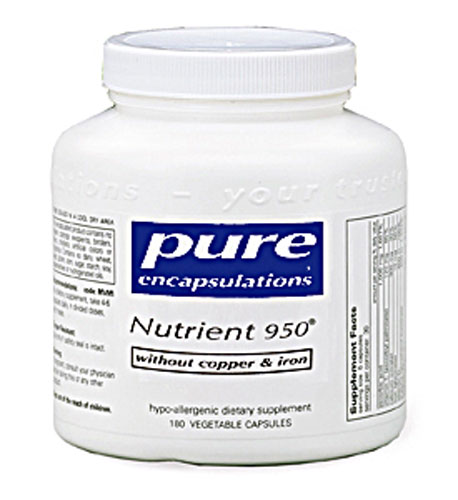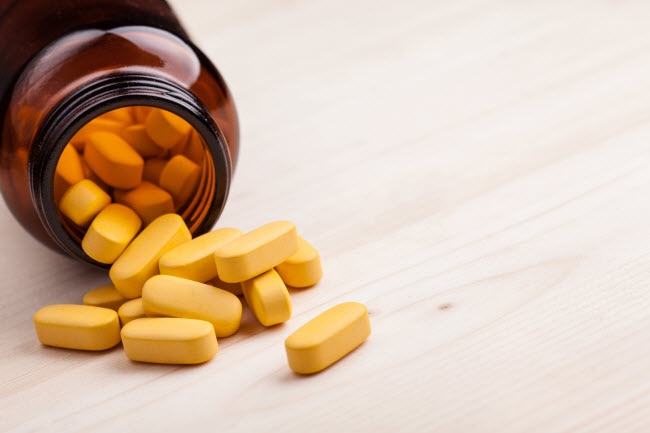You make a deliberate, consistent choice to eat as wholesomely as possible, filling your plate with organic produce, lean protein, and probiotic-rich foods.
And yet, even the most virtuous eaters among us may be prone to having a vitamin deficiency. Research shows that roughly 40 percent of the population has vitamin shortages, while women are more susceptible to having lower-than-optimal levels of certain key nutrients.
Here are four vitamins women may be inadequate in—and the simple ways you can weave them into your diet.
Potential vitamin deficiencies in women
1. Iron
With iron deficiency affecting approximately 1 billion people worldwide, it’s the most common deficiency on the planet. It strikes women in particular, with reports showing that around 30 percent of menstruating women may be undersupplied (due to monthly blood loss) as well as 42 percent of young, pregnant women. Meanwhile, women who are in perimenopause—the stage of life before menopause—are at a higher risk of developing an iron deficiency, Medical News Today reports. In general, women ages 19-50 require 18 mg of iron per day; pregnant women need even more.
Why you need it: Iron plays an imperative role in a number of biological functions. Chief among them? It helps transport oxygen to your muscles and brain. It also aids in the creation of certain hormones and connective tissues.
Symptoms of an iron deficiency: The most prevalent symptoms associated with an iron deficiency are weakness, fatigue, headaches, dizziness and shortness of breath.
How to bring more of it into your diet: The best source of iron is what’s called heme iron, and it can only be found in animal products (meat, poultry, and fish). Non-heme iron—the type that’s found in plant and animal products such as beans, dried fruits, and leafy greens—is less easily absorbed in the body. Nevertheless, iron-rich foods should still comprise a large part of your diet. Just be sure to pair them with vitamin C-rich foods like citrus fruits and tomatoes—they help bolster iron absorption.
2. Folic Acid
According to the U.S. Department of Health and Human Services, folic acid is one of the most vital nutrients for women who might get pregnant—or already are. This demographic needs 400-800 mcg of folic acid each day, whether it’s from diet, supplements, or a combination thereof.
Why you need it: Also known as vitamin B9, folic acid helps facilitate the creation of blood cells and the DNA for new cells. It also helps thwart neural tube birth defects, which occur during the first three months of pregnancy. Additionally, folic acid aids with protein digestion and may help prevent premature births and low birth weight.†
Symptoms of a folic acid deficiency: While deficiencies are most frequently found in pregnant and lactating women (as well as in people with chronic gastrointestinal conditions), an inadequate amount of this essential nutrient can manifest in symptoms ranging from muscle weakness to pallor to confusion
How to bring more of it into your diet: Some of the leading options of folic acid-rich foods? Dark, leafy greens, citrus fruits, asparagus, chickpeas, fortified grains and eggs.
3. Vitamin D
Blame it on the increasing amount of time we women (and men) spend indoors, or call certain conditions—such as inflammatory bowel disease and obesity—the culprit. Whatever the case may be, approximately 41 percent of adults show a shortage of this key nutrient, with those numbers spiking to 69.2 percent in Hispanics and 82.1 percent in African Americans. Women in particular need to ensure they’re getting enough of vitamin D, as a dearth of it could rob bones of the nutrients they need and potentially lead to osteoporosis—which, out of the approximately 10 million people it strikes,
80 percent are women. The recommended intake of vitamin D for women ranges between 400-800 IU.
Why you need it: Call it the Sunshine Vitamin, call it the vital vitamin—but what vitamin D really does is act as a hormone. Working with calcium, it naturally supports bone health and, as mentioned, may help prevent osteoporosis. It also organically supports immunity and “reduces inflammation in your cells,” the Office on Women’s Health reports.†
Symptoms of a Vitamin D deficiency: The most ubiquitous symptoms of a vitamin D deficiency are a tendency towards getting sick on a regular basis, bone and back pain, hair loss, impaired wound healing and depression, particularly in older adults.
How to bring more of it into your diet: Enjoy sushi and sashimi—or a good, old fashioned tuna salad? Good on you. Fatty fish, including tuna and salmon, brims with Vitamin D. You can also find this fundamental nutrient in fortified foods, such as milk, yogurt, cereals and orange juice.
4. Riboflavin
Often overlooked underneath the glare of powerhouse vitamins like D and C, riboflavin is the underdog in the world of nutrients, quietly working its magic but frequently going unmentioned in media. That’s a shame, too, as the nutrient—also known as vitamin B2---has a number of critical tasks in your body. Women need 1.1 mg per day; pregnant women require a touch more (1.4 mg).
Why you need it: Riboflavin works in conjunction with other B vitamins in what’s known as the “B vitamin complex.” Impacting every cell in your body, it’s responsible for a series of functions, including bolstering energy levels, maintaining robust blood cells, fostering a healthy metabolism and naturally encouraging skin and eye health. Riboflavin also operates as a vital antioxidant, helping to shield you from oxidative harm and the cardiovascular and neurological issues that can arrive with it.†
Symptoms of a riboflavin deficiency: Ever have dry, cracked lips—or a sore throat, tongue, or mouth inflammation? A lack of riboflavin may be the cause. Other symptoms of a riboflavin deficiency include fatigue, a sluggish metabolism, changes in mood (such as the onset of depression and anxiety) and anemia.
How to bring more of it into your diet: Lucky for us, riboflavin is found in a number of delicious foods. Yogurt, milk, spinach, and almonds carry some of the highest amounts of riboflavin available (although organ meat, such as beef liver, is your best bet). Other top options include eggs, lentils, mushrooms, wild-caught salmon, and kidney beans. To really ramp up your intake of riboflavin, consider preparing quinoa with feta and sun-dried tomatoes. All three foods rank high in this essential nutrient—and may leave you feeling amazing.
†These statements have not been approved by the Food and Drug Administration. These products are not intended to diagnose, treat, cure or prevent disease.




